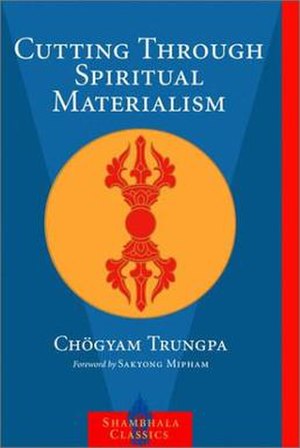I'm going to be sharing a few things over the next week or two that I see when I look at the current terrain in the spiritual landscape, starting with my own current outlook. The question I opened with is one that comes up from time to time and is good for taking stock of where you are.
To clarify what I mean by that question, I keep realizing every year how the recurring bits of wisdom teachings I have been exposed to keep eluding me. They do this in a sneaky way: by seeming to actually offer some really helpful or interesting new insight. And then they do it again. And each time, you kind of get the feeling that "Now I really get it!", only to later realize that there was some aspect of it that I still didn't realize applied to me or my life.
For example, even though there is contemplative/apophatic wisdom that promotes seeking in silence, not clinging to or rejecting thoughts, and so on. It's fairly impossible not to try to understand this or to think you've "got it!" by using discursive reasoning and abstract thought! It's one of those things that's so simple we have to make it complicated.
And of course there is the well-known opposite, trying to make your conscious mind a total blank. This goes hand in hand with misunderstanding warnings about fixating over how we conceptualize our experiences, concluding that all experiences (whether perceptions, imaginings, etc) are always misleading and dangerous. As if lack of any form or degree of awareness, some kind of total oblivion, is the only way to be "free" or "pure".
Think about it. You've got teachings saying that God, or Buddha, or the Tao, or whatever is in all things and beyond all things (simultaneously immanent and transcendent). That every though, feeling, and other kind of experience is a reflection or manifestation of what the spiritual seeker is trying to recognize. So there is no analysis needed to try to settle into appreciating that -- that now matter how boring, useless, or dreadful something may seem, it's part of the larger reality one is trying to connect with.
As I've tried to articulate with the following recurring image:
"It's one thing to imagine you have a fundamental connection to a sunset or a rainbow or a butterfly. It's nice to be the rainbow. But it's not nice to be the landfill. It's not nice to be fundamentally connected to rapists, to murderers, to peverts, to worst of humanity as well as the best. Yet Being cannot discriminate. That's where the idea of Jesus bearing the sins of the world comes into play. By accepting your true nature as a manifestation of Being you accept the whole thing. You have compassion for the whole thing."But despite this there is still, even among those who claim to be inspired or to live by such wisdom teachings, this persistence in trying to create a pure/impure or enlightened/unenlightened duality when trying to realize whatever is hiding behind the name that a particular seeker has given to what they are seeking. As if collecting certain thoughts and behaviors and weeding out others will in and of itself summon the thing being sought, like rubbing a lamp to summon a genie.
Yet the deeper wisdom currents in various spiritual traditions suggest that what one is seeking cannot be define by or limited to a particular object, let alone any abstraction, which we can conjure through a particular set of efforts. Those efforts may help us to see more clearly what is already there, but that is a different understanding of them (and what is being seen) altogether.











